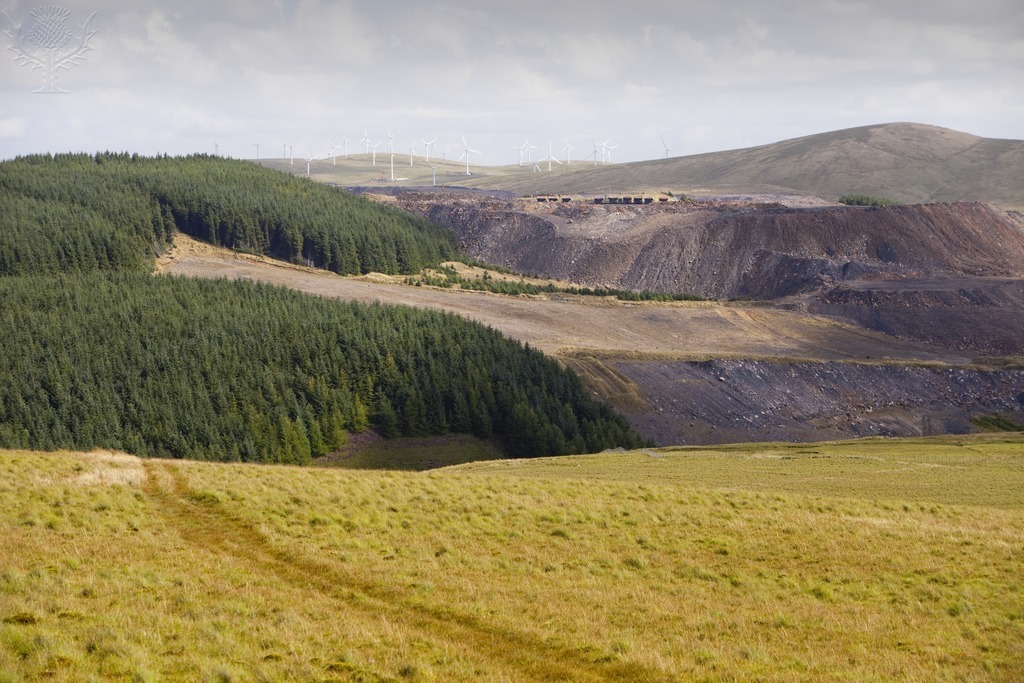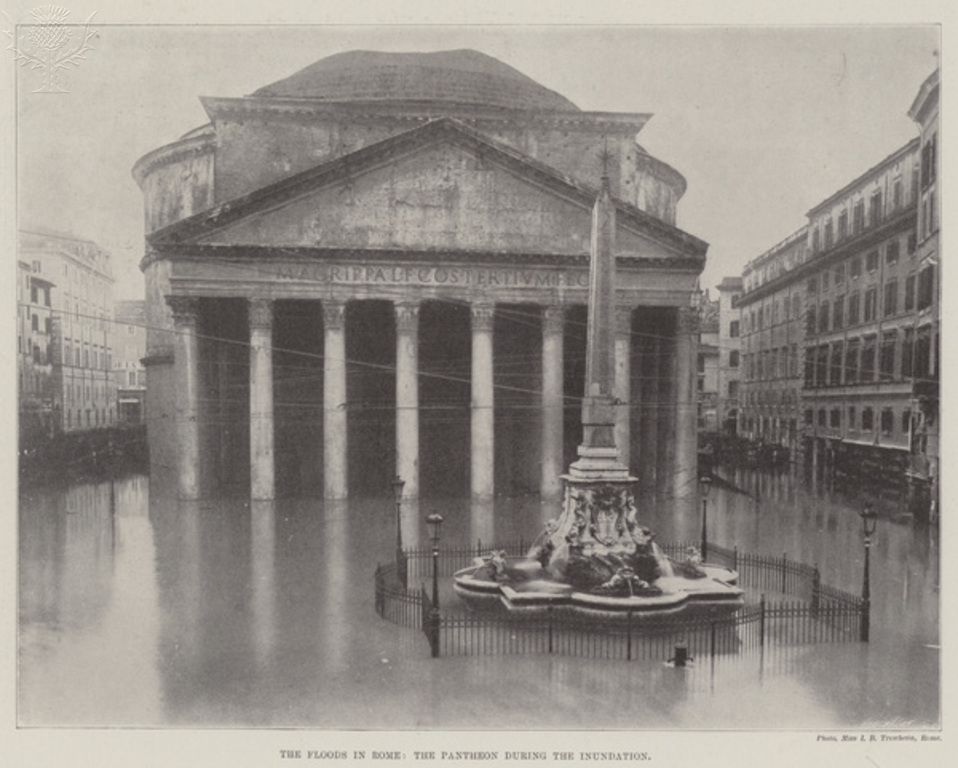Environment
Some might say there is little scope for Classicists to get involved in environmental studies. However, as our reading and guest lecturers have shown us, an investigation of ecological crises through a wider body of evidence and a wide range of lenses can help people to see (and solve) problems from multiple angles. We often think and talk about climate change as a primarily scientific and technological issue; but it is driven by and affects humans. The human-environment relationship, and all that entails (socio-economic changes, cultural factors, political ideologies, inequalities, and ethics), is therefore are a vital area of study. And Classics has a lot to contribute here, not least because climate variability and environmental changes is not an entirely new phenomenon.


The Floods in Rome, the Pantheon during the Inundation
Climate change is featured in discussions of societal ‘collapse’ from Antiquity, including the Bronze Age Collapse, and the fall of the Roman Empire. While thought-provoking, these discussions should be treated with some caution, as Dr Ruben Post stressed in one of our lectures. They have a tendency to simplify things. They also rely on the problematic notion of ‘climate determinism’, which implies that climate is the main factor in determining whether or not a society can survive or thrive. And they overlook the human mechanisms (political structures, societal systems, belief systems, human agency) that play a role. As Dr Post explained, this is exactly where ‘Applied Classics’ can step in. In his words:
- Classics needs to focus on that black box – the political, societal, cultural factors that ultimately determine whether societies can adapt to climate change or not
- In doing do, it can help us think about the political, social, economic changes we need to make to address climate change/environmental problems
- Via (careful) parallels, Classics can alert us to the dire consequences if we do not make those changes… for everyone, but especially for the most vulnerable in society
- And by offering ancient examples of adaptation and resilience, Classics can show us how individuals and institutions managed to weather extreme climate events and more prolonged variability, which in turn can help us see ourselves not as passive bystanders but to appreciate the importance of our agency to mitigate/moderate climate change
- Finally, Classics can also contextualise the magnitude of climate variability by giving us ancient co-ordinates with which to compare modern trends.
It is very important to recognise that the climate change we face now is markedly different from pre-industrial environmental change. There can be a tendency to create parallels between the ancient and modern world; and this might lead to suggestions that, because humanity has survived climate variability before, it is a natural process and the climate change we face now is not so different from that in the past. This is inaccurate, and can have serious consequences; so ‘Applied Classics’ projects tackling environmental issues must be alert to this pitfall and work rigorously with ancient and modern evidence to draw key contrasts as well as parallels.
Providing that happens, there is much to be gained. ‘Applied Classics’ can focus attention both on human activities/decision-making and on human casualties/climate injustice, as Dr Andrea Brock discussed with us, using ancient Roman flooding as a case study. In the process, Classical case studies can prompt people to consider how they might contribute to changing social, political, and economic institutions (not just their own behaviours) in order to combat environmental problems. Below you can find a range of projects that we have developed, aimed at tackling different aspects of climate change through the study of antiquity. We hope you enjoy browsing them and would love to hear what you think.
We have enjoyed engaging with the University of St Andrews’ Centre for Ancient Environmental Studies, drawing on many of their publications and benefiting from generous advice and mentoring from their members. With the support of Dr Andrea Brock and Dr Ruben Post, our ‘Modern Classics’ module won the University of St Andrews’ Sustainability in the Curriculum Prize 2021 and was awarded a Golden Dandelion.
Environmental Literacy via Ancient Myths
Undergraduate students Emily Dale, Cole Lum and Eleanor Shorten were part of the 2025 Modern Classics cohort, and designed the following Applied Classics podcast project to enhance environmental literacy amongst young people via storytelling and art based on ancient myths. They describe their project below: We aim to draw parallels between ancient Greco-Roman myths and… Read More
Classical Coastlines
In 2022, a group of three students, Caitlin Brown, Kristoffer Naas and Lily Talbot, developed the Classical Coastlines Project. The project uses ancient case studies in dialogue with modern ones to raise awareness of strategies of mitigation and adaptation against environmental change, promoting local voices and encouraging critical thinking among authorities addressing environmental change. Introduction… Read More
The Frontinus Project
In 2020, a team of three students – Henry Bennett, Henry Kirk and William Laird – developed The Frontinus Project. Its aim is to spark discussion of a pressing modern issue, the supply of clean water to communities, through a series of ancient case studies. Introduction The aim of our project is to run a… Read More
Climate and Classics: Deforestation
In 2020, a team of four students – Erin Limmack, Eleanor Pain, Ellis Williams and Taylor Williams – developed the following project. Its aim is to get young people thinking and talking about a contemporary environmental challenge, deforestation, via case studies from ancient Rome. Introduction Climate & Classics is offering a short (4-day) residential retreat… Read More



